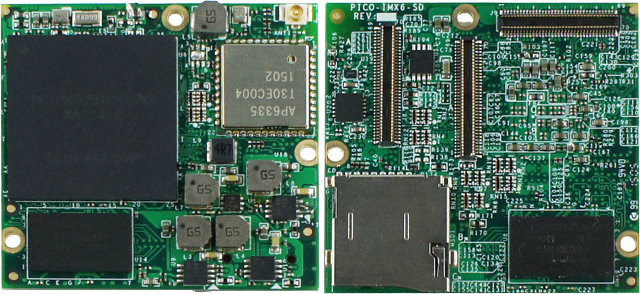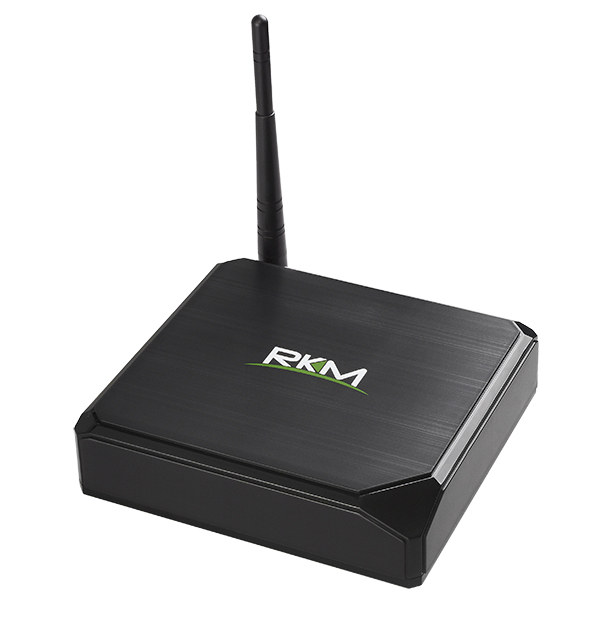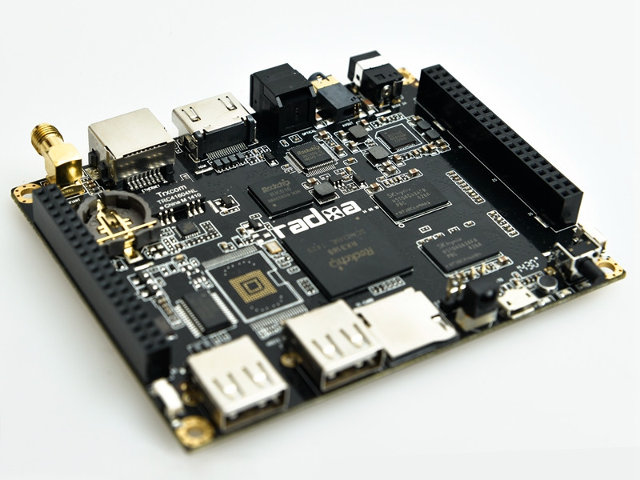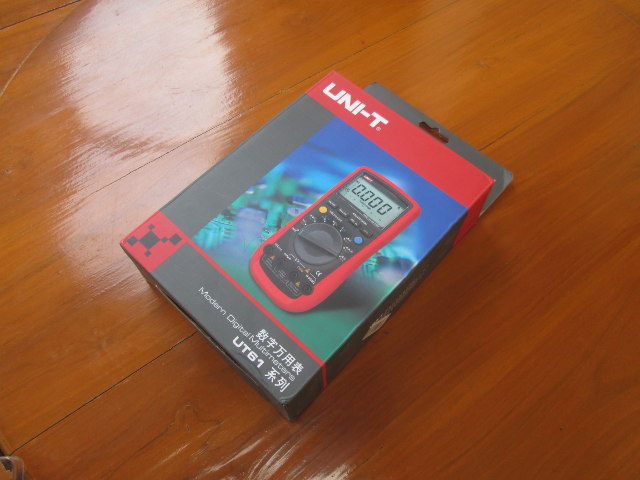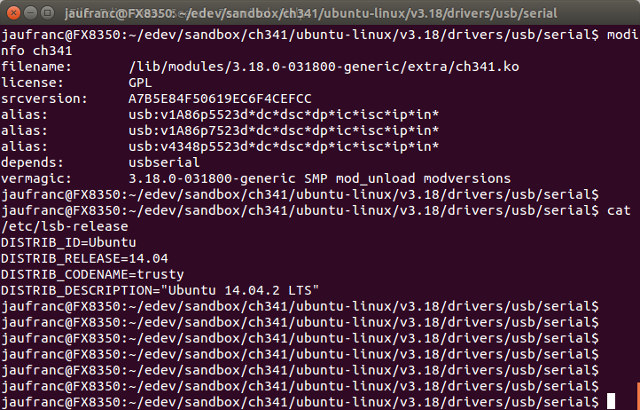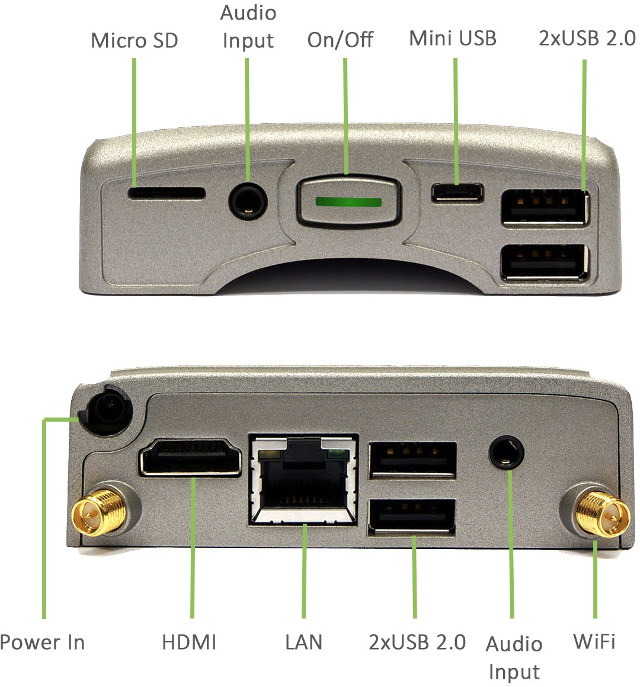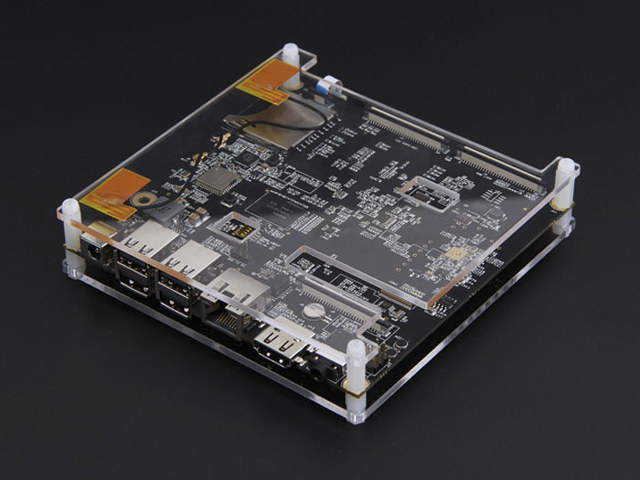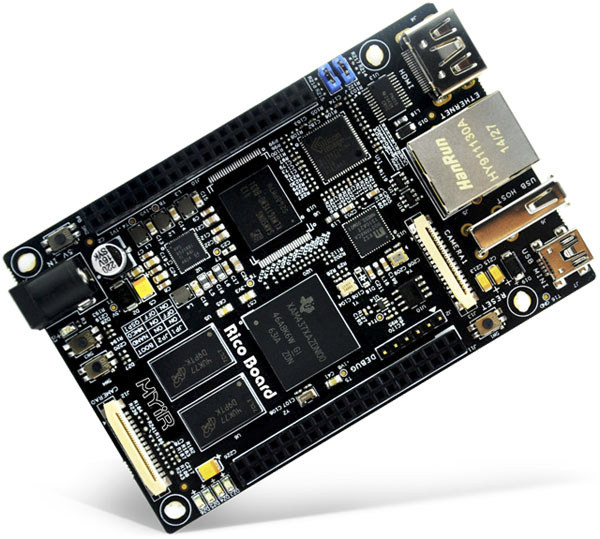Intel Edison is a board made for wearables featuring an SoC with Intel Atom and Quark CPU cores. TechNexion, an embedded systems company based in Taiwan, has decided to make a mechanically and electrically compatible system-on-module featuring Frescale i.MX6 Solo or Duallite ARM Cortex A9 processor called PICO-iMX6. The company is also providing a PICO-DWARF baseboard that’s both compatible with PICO-iMX6 SoM and Edison board. DWARF stands for “Drones, Wearables, Appliances, Robotics and Fun”, so that pretty much explains what the platform is for. PICO-iMX6 System-on-Module Two version of the modules are available: PICO-iMX6-SD and PICO-iMX6-EMMC, the former with a micro SD slot for storage, and the latter a 4GB eMMC. Both share the followings specifications: SoC – Freescale i.MX6 Solo / Duallite single/dual core ARM Cortex A9 @ 1Ghz with Vivante GC880 3D GPU and Vivante GC320 2D GPU (Composition) System Memory – 512MB or 1GB DDR3 Storage – […]
Rikomagic MK80LE (Linux Edition) Octa-core Ubuntu mini PC
Allwinner A80 based Rikomagic MK80 Android TV box, now has a Linux sibling with Rikomagic MK80LE (Linux Edition) running Ubuntu 14.04, and allegedly supports 2D/3D graphics acceleration, and hardware video decoding. Two versions are available MK80LE with 2GB RAM & 16GB Flash, and MK80LE Plus with 4GB RAM & 32GB flash. The hardware specs are the same as the Android versions (and Tronsmart Draco AW80 Meta / Telos): SoC – AllWinner Ultra Core A80 4x Cortex 15 @ 2016 MHz, 4x Cortex A7 @ 1320 MHz big.LITTLE processor with Imagination Technologies PowerVR GC6230 GPU with support for OpenGL ES 1.1/2.0/3.0, Directx 9.3 System Memory – 2GB (MK80LE), or 4GB (MK80LE Plus) RAM Storage – 16 GB (MK80LE) or 32GB (MK80LE Plus) eMMC, external SATA port (via a USB 2.0 bridge), and micro SD slot up to 64GB Video Output – HDMI 1.4 + AV port Audio Output – HDMI, AV […]
Radxa Rock Lite Board Price Drops to $39
When the new Radxa Rock Lite was announced for $59 in September 2014, it was one of the most inexpensive quad core ARM Linux development board available on the market. But ODROID-C1 board in December 2014, and especially Raspberry Pi 2 board in February 2015 changed all that, as these two quad core boards sell for $35 before shipping and taxes. So the company has now decided to drop the price to $39 for the Radxa Rock Lite board. Let’s remind us of Radxa Rock Lite specifications: SoC – Rockchip RK3188 ARM Cortex-A9 quad core @ 1.6Ghz + Mali-400 MP4 GPU System Memory – 1GB DDR3 @ 800Mhz Storage – micro-SD SDXC up to 128GB Video Output – HDMI 1.4 up to 1080p@60hz, and AV output. LVDS interface. Connectivity – 10/100M Ethernet port, WiFi 150Mbps 802.11b/g/n with antenna Audio I/O – Audio S/PDIF, headphone jack Camera – CSI interface USB […]
Sigrok and Pulseview in Ubuntu 14.04 with UNI-T UT61E Digital Multimeter
A couple of months ago, I received a new digital multimeter UNI-T UT61E that can send data to a computer via a serial cable, and allows you draw some nice charts. I’ve already done that in Windows 7 with the provided tools, and reported on the power consumption of some Chinese Android TV boxes. However, since I use Ubuntu 14.04 as my main operating system, Linux based tools would be more convenient, and open source sigrok-cli command line client and its graphical interface pulseview are supposed to support UT61E DMM, so I had to give it a try. A Quick Look at UNI-T UT61 Digital Multimeter Before going into Sigrok, I’ll quickly show what the multimeter received from DealExtreme . It took longer than expected to ship because of of included 9V battery, and at the first shipping attempt it was returned to DX, but after 8 weeks or so, […]
How to Build a Single Kernel Module (Driver) in Ubuntu
When I bought UNI-T UT61E digital multimeter, I planned to to use the open source tool Sigrok to capture voltage, current or resistance data with my Ubuntu 14.04 machine. Unfortunately, it was just not working for me and I kept getting some “Invalid function byte” error messages, so I asked on Sigrok mailing list, and since it worked for others, I was in big troubles. It turned out the RS-232 to USB dongle I used:
|
1 2 |
idVendor 0x1a86 QinHeng Electronics idProduct 0x7523 HL-340 USB-Serial adapter |
was most likely to culprit, so I decided to buy another random USB to serial dongle on eBay, and after a few weeks I received it only to find out it had the exact same VID:PID, so I was out of luck. Finally, I gave up on Sigrok on Linux, and tested the power consumption of some Rockchip RK3288 & Amlogic S802 devices in a Windows 7 virtual machine running in my Ubuntu 14.04 […]
Compulab Utilite2 Android / Ubuntu mini PC is Now Up for Sale for $192 and Up
Compulab Utilite2 is a new family of mini PCs powered vt Qualcomm Snapdragon 600 quad core Krait 300 processor, with 2GB RAM, 4GB eMMC and optional mSATA storage that runs Android 4.4 or Ubuntu Linaro, with CM-QS600 SoM found in the device being officially supported by Linaro. Utilite2 Standard 4G and Standard 4G + 32SSD (or just SSD for short) are now listed on UK based TinyGreenPC for respectively £158.00 ($241) and £181.00 ($276), but the two models can also be bought direct on Compulab website for $192 and $229 with a 4 weeks lead time. Utilite2 specifications: SoC – Qualcomm Snapdragon 600 APQ8064 quad-core Krait 300 @ 1.7GHz with Adreno 320 GPU compliant with OpenGL ES 1.1 / 2.0 / 3.0 and OpenCL System Memory – 2GB DDR3-1066 Storage – 4GB eMMC, mSATA socket (mini-PCie form-factor, populated with 32 GB SSD on SSD model), and micro-SD slot up to […]
Mixtile LOFT-Q Allwinner A31 Board with SATA Can Now be Purchased for $90
Mixtile LOFT-Q and LOFT Kit were unveiled nearly a year ago, the first being a development board based on Allwinner A31 processor with 2GB RAM, 16GB RAM, SATA connector, Gigabit Ethernet, etc.., while the second is a kit with an enclosure and power supply. The kit does not appear to be available yet, but the board has recently been listed on SeeedStudio for $90. Mixtile LOFT-Q specifications: SoC – Allwinner A31 quad core ARM Cortex-A7 processor with PowerVR SGX544 MP2 GPU System Memory – 2GB DDR3 Storage – 8GB eMMC, SATA III connector for 2.5″ drives, and SD card Slot Video Output – HDMI 1.4 up to 1080p60 Video Decoding – H.264 4Kx2K video decoding, multi-format FHD video decoding, including Mpeg1/2, Mpeg4 SP/ASP GMC, H.263, H.264,etc Audio I/O – HDMI, 1 S/PDIF, high definition microphone Camera I/F Integrated Parallel & MIPI I/F sensor Integrated powerful ISP, supporting Raw Data CMOS […]
MYiR Tech Announces Low Cost Rico and Z-turn Boards Powered by TI AM437x and Xilinx Zynq-7010 SoCs
Shenzhen based MYIR Tech has just launched two new single board computers with Rico board featuring Texas Instruments Sitara AM437x ARM Cortex A9 industrial processor, and Z-Turn board based on Xilinx Zynq-7010 ARM Cortex A9 + FPGA SoC. Both boards sell for $99 in single quantity. Rico Board Specifications: SoC – Texas Instruments AM4379 single core ARM Cortex A9 processor @ 1.0GHz with PowerVR SGX530 GPU, and 4x PRU @ 200 MHz. Other AM437x on request. System Memory – 512MB DDR3 (Options: 256MB or 1GB) Storage – 4GB eMMC, 256 or 512 MB NAND flash (reserved), 16MB QSPI flash, 32KB EEPROM, and micro SD slot Video Output – HDMI and LCD interfaces (LCD connector located on bottom of the board). Connectivity – 10/100/1000 Mbps Ethernet USB – 1x mini USB 2.0 device port, 1x USB 2.0 host post Camera – 2x 30-pin camera interface Debugging – 1x debug serial port, […]


